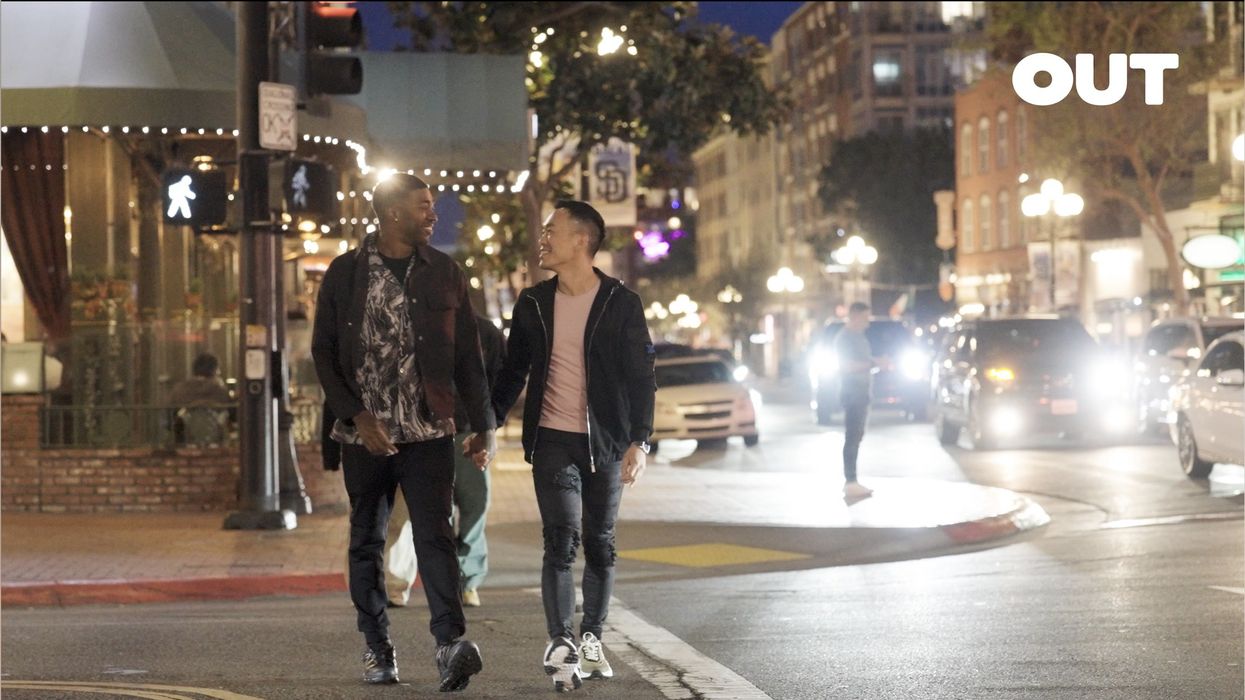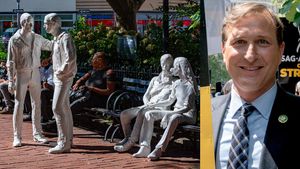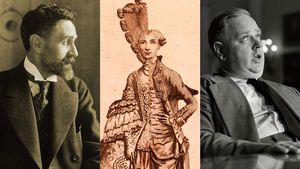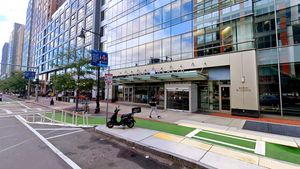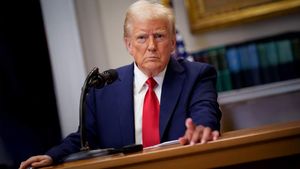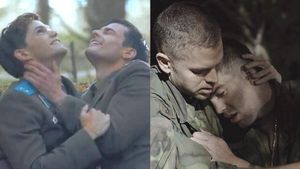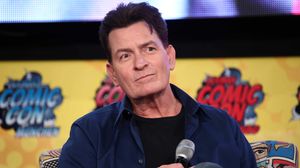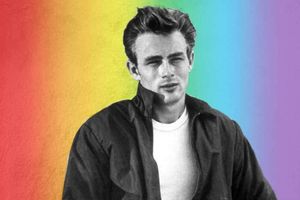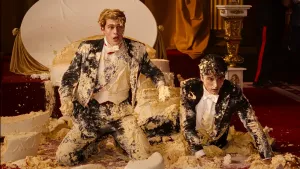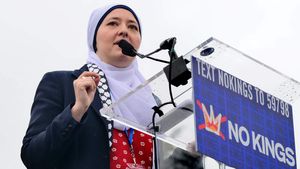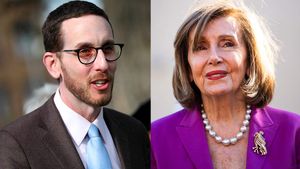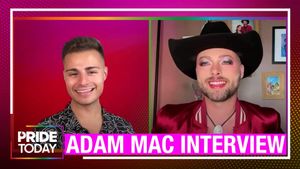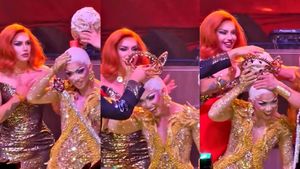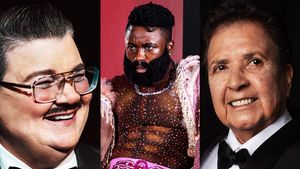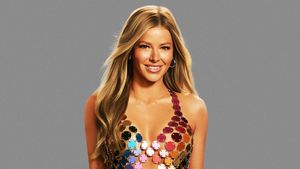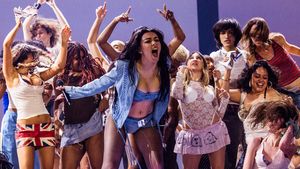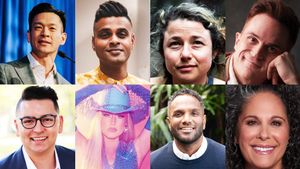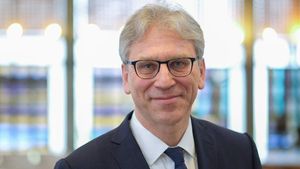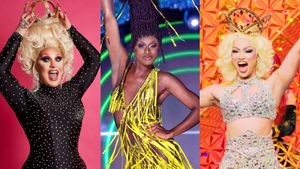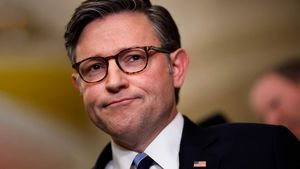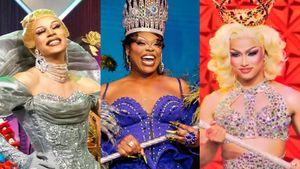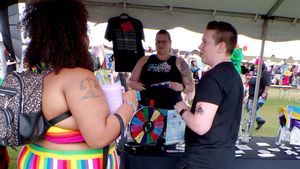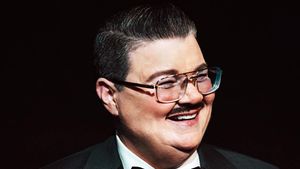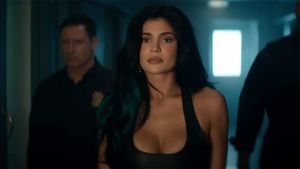Singer-songwriter Patrick Haggerty is among those reflecting on Fidel Castro's impact on the world since his death on Nov. 25. A longtime musician, Haggerty has recently enjoyed a resurgence of interest in his pioneering gay country album, "Lavender Country," released in 1973. Less-known is Haggerty’s history as a gay communist revolutionary who traveled to Cuba in the 1960s to cut sugarcane and fight for queer liberation.
Back then, Haggerty was a member of the Venceremos Brigade, a Cuban government-backed organization that sponsored work and education programs for American students. Having come out only a few months earlier, Haggerty joined the brigade and found himself advocating for gay liberation in sugarcane fields, even as Castro’s government was sentencing queer Cubans to serve in labor camps.
We spoke to Haggerty about his experience in the wake of Castro’s passing.
Out: How did you wind up in Cuba after the revolution?
Patrick Haggerty: I was selected along with four other people from Seattle. So off we went. I had been out about six months and it was like, "I'm out of the closet, I'm never going back." We were all screamingly out, we weren't going to shut up no matter what. I landed in Cuba with that headset. And there were four or five other lesbians and gays of a similar headset, out of about 270 of us in this project.
So we formed a gay caucus at the same time that the Cuban revolution came out with an anti-gay document.
What was that document?
Everybody in Cuba, as they were in the U.S., and pretty much everywhere else in the Western world, was pretty ignorant about homosexuality.
In Cuba there was a double-giddyup in the stereotyping. Because in Cuba, what homosexuality meant to revolutionaries was that white rich American homosexuals went to Havana to sexually exploit their youth. And that happened a lot. And there was a lot of gambling and prostitution under the Batista regime. It was like Las Vegas-corrupt, only worse.
So that's who they thought we were. Child molesters.
They passed this decree that said that Cubans who were gay could not have anything to do with children. They couldn't be teachers or be involved in any profession that involved children. The other thing they said was that homosexuals could not represent Cuba in any arts or cultural activities. And of course Cuban arts and culture was exploding all over the world.
So that was the decree, and then the fight was on.
Were you involved in that fight?
Things got tense. Quite tense. I was never physically assaulted while I was in Cuba but it came very close to that, numerous times. Our lives were threatened. Not by the Cubans -- I really want to make that clear -- not by the Cubans. There were many Cubans involved in Venceremos. Some were students and some were Communist Party leaders. They were out to follow the decree and do as directed. But they were polite and wanted to know more, and were interested in what the gay caucus was trying to say even though they couldn't let us do any public proclamations. They were respectful and police, all of them.
What were you doing day-to-day?
We were cutting cane. We went out in the sugarcane fields with our machetes and harvested sugarcane all day and then we had educational programs at night and on the weekend.
It was like this: you were there to show your support for the Cuban revolution by engaging in sugarcane cutting. And sugarcane cutting is an intensely laborious, difficult, hard job. Well, it turned out that there were two us, me and a guy named Ronnie -- who got AIDS and died 25 years ago -- he was a great revolutionary. Militant, and very gay, radically developed. One of the best comrades I ever had in terms of politics.
Ronnie came from west Texas, from a welfare family with a single mom who was disabled. Ronnie had to get out and engage in difficult physical labor from his mid-childhood on. So Ronnie was very experienced at hard physical labor. And so was I, because I grew up on a dairy farm.
So Ronnie and I were very prepared to do physical labor, as opposed to almost all of the other 270 Americans who were there, mostly urban college kids. Ronnie took me out in the sugarcane field very early one night and had a little chat, and that was Ronnie saying to me, "we either need to leave this island tomorrow, or we need to cut more sugarcane than anybody else. Or we're not going to get off of this island. That's the reality."
Ronnie and I stuck to that principle, and it served us well. And we did lay down more sugarcane almost every day than anybody else. And then we wouldn't shut up.
Did you encounter other gay and lesbian Cubans?
All of the organizing that was going on with gays and lesbians in Cuba at that time was under the radar. We were visited several times at night by lesbian and gay Cubans. Some of them traveled several hundred miles to get to us. It became known all over the island that there was a gay caucus in the Venceremos brigade.
What did they want to talk about?
They wanted to talk about being gay in Cuba, they wanted to talk about coming out, they wanted to talk about the same things gays and lesbians in the United States wanted to talk about. The issues were quite similar. When it came to homophobia there wasn't a dime's worth of difference between Latin and American culture. Everybody talks about machismo, but all that is just bullshit. American straight men were running around acting macho too.
Do you feel like you were able to help them?
Those early years are very dark for Ccuban lesbians and gays. There was significant repression. If you were a lesbian or gay and not down with the revolution in terms of ideological aspects, you might've ended up incarcerated.
But I want to emphasize that American lesbains and gays were being incarcerated also. So this wasn't something unique to Cuba. Everybody likes to talk about how Fidel threw all the gays in jails and mental hospitals. Well, I wound up in a mental hospital right here in Washington over the gay thing myself, so shut the fuck up. Shut up and look in your own backyard.
But we were able to provide them with information. We brought a lot of gay literature with us, which we disseminated. And we tried to provide them with hope and inspiration the best way we could. Our actual contact with lesbians and gays in Cuba was surreptitious and limited.
When you returned to the U.S., were you fired up to continue with gay liberation?
Oh my, oh yes. All of the repression and horrible stuff that happened to us in Cuba didn't change my mind a bit. Not at all. If anything I was more committed to the whole gay liberation thing. The transformation came down in that it turned me into a socialist. That's what I got out of my experience in Cuba. It turned me into a revolutionary socialist for a lifetime.
What did you work on when you got back?
Haggerty: Anything that was going on in the Northwest in the ‘70s. Whatever it was. Marches, demonstrations, kicking our way into the anti-war movement, kicking our way into the women's movement, kicking our way into the labor movement. I have never been subjected to physical assault for my homosexual position, but for one time, and it didn't happen in Cuba, it happened in Seattle.
It happened when we were joining an anti-war demonstration in the early ‘70s, and we showed up with a sign that said “F****ts against the war.” And the Revolutionary Communist Party was not going to allow us to be in the demonstration, and they were trying to forcibly eject us. They thought because we were f****ts and they were tough revolutionaries that they could easily physically overpower us. And they were wrong. [Laughs.]
They were wrong.
Would you have had as much drive to fight if you hadn't spent time in Cuba?
I think what happened was I combined gay liberation with socialist revolution and that turned into one entity for me. In my mind, the real path to gay liberation in its entirety involved solid human rights for everybody, free health care, free education, employment for all.
And for a long time, the Democratic Party was able to co-opt that idea and put forth the illusion, “oh we'll give you lesbian and gay rights under capitalism,” and that was a highly infectious idea. And it captured the lesbian and gay movement for 30 to 45 years. Now we've arrived on a new scene, and now we see what legs of clay it actually has. The election puts that in stark reality for everybody. These rights have always been limited.




































